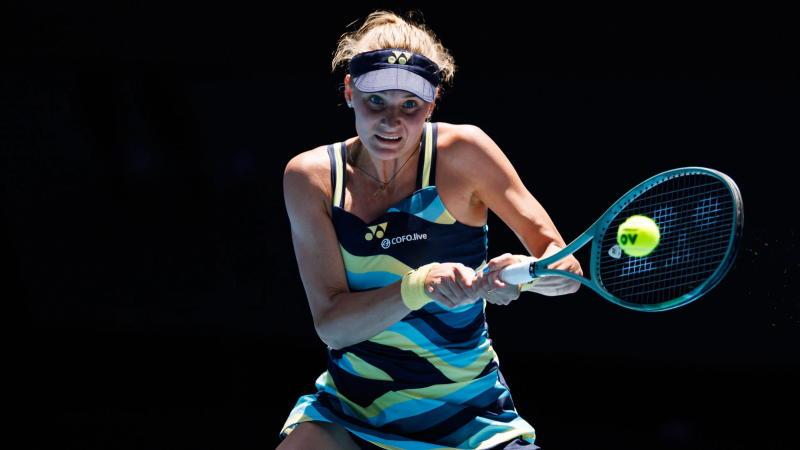Coco Gauff set for US Open final rematch with Aryna Sabalenka at Australian Open semifinals
Of the 12 consecutive Grand Slam matches that Coco Gauff has won en route to the Australian Open semifinal, she has played her best tennis (or something close to it) in roughly half of them.
It’s almost becoming Gauff’s brand: Watch one or multiple parts of her game break down, get in trouble against an opponent she should beat, then find a way to use her athleticism and competitive instincts to push through the challenge.
It’s a dangerous way to live in these tournaments. It also shows why Gauff has become a champion just shy of her 20th birthday and felt confident enough before the Australian Open to muse about winning double-digit Grand Slams before her career is over.
But if she wants to match what Naomi Osaka did in 2019 by winning No. 2 immediately after her first at the US Open, the high-wire act probably won’t be good enough. To beat Aryna Sabalenka – particularly this Aryna Sabalenka – will likely require nothing less than Gauff’s best.

Because above all else – maybe even the trophy itself -- this is the match Sabalenka wants. It’s the one she’s been waiting for. And in the early hours of Thursday morning (for American viewers) it’s the match she’s going to get.
“I love it,” Sabalenka said. “I love it.”
Rewind back to Arthur Ashe Stadium on Sept. 9. Gauff was struggling – more with Sabalenka’s powerful game than the occasion of her first US Open final. But after losing the first set, Gauff was determined to claw her way back into the match with what she always has in her arsenal: Elite defense and court coverage.
FLASHBACK:Gauff wins US Open women's final for first Grand Slam title
Fighting as hard as she could to retrieve every ball, Gauff dug in and made Sabalanka hit as many extra shots as she could hoping to maybe lure her into missing. Little by little, it worked. The crowd got involved in the match, lifting Gauff’s game. Sabalenka got emotional and started pressing. By the third set, her game unraveled and Gauff lifted a Grand Slam trophy for the first time.
“The good news is that it’s me against me,” Sabalenka said after the match. “The bad (news) is that I’m still having these issues playing against myself.”
The US Open disappointment concluded a strange year for Sabalenka. After winning her first Grand Slam title in Australia – playing probably the most clutch match of her life in the final against Elena Rybakina -- she had opportunities to win the other three majors but crumbled under pressure.
The current run in Australia marks Sabalenka’s sixth consecutive Grand Slam semifinal, and this one has felt different from the beginning. She’s not just winning these matches − she’s laying waste to everyone, including heavily lopsided scores against quality players. In five matches, Sabalenka has lost a total of 16 games.
Gauff’s play hasn’t been quite as stable, even though her draw to get to the semis has been about as favorable as possible. Though Gauff has had some breezy wins in this tournament, the highest-ranked player she faced was the quarterfinal against No. 37 Marta Kostyuk – and it was the definition of an ugly win.
Somehow despite multiple parts of her game failing her – the total count for Gauff was 17 winners against 51 unforced errors – she got through 7-6, 6-7, 6-2 to reach her first semifinal in Australia.
“It was a fight,” she said. “I think today was definitely like my C-game.”
If Sabalenka continues playing the quality of tennis she’s displayed the entire tournament, Gauff’s C-game probably won’t cut it. In fact, her A-game may not even be good enough. That’s how dominant the big-hitting Belarusian has been thus far.
But the one thing you can say about Gauff is that no matter what’s working or not working for her on a given day, she’s gotten very good at triaging bad situations, changing tactics and just flat-out winning tennis matches ever since Brad Gilbert became her coach last summer. Once she embraced the idea that she didn’t need to play perfect tennis to win, the results have been incredible: 34 wins in her last 38 matches.
That’s kind of Gilbert’s trademark. After all, the book he wrote about his own career was called “Winning Ugly,” and you can see some of those traits in the way Gauff has found her way out of trouble in last two Grand Slams.
You'd think the playbook for Gauff will be similar to what it was in New York: Defend, dig, run and make it as ugly as possible to get Sabalenka thinking and feeling the pressure. After all, with two longshots waiting on the other side of the draw in Ukraine's Dayana Yastremska and China's Qinwen Zheng, this match is going to feel like the de facto final.
The exciting thing for Gauff is that she's still not even close to her ceiling. These matches have shown how much she still needs to fix fundamentally in her game, and yet she's got a real chance to win her second Grand Slam this weekend. But at one point or another, Gauff does need to play her best to start collecting these big titles at the rate she thinks she can.
This would be a perfect time to start.

Disclaimer: The copyright of this article belongs to the original author. Reposting this article is solely for the purpose of information dissemination and does not constitute any investment advice. If there is any infringement, please contact us immediately. We will make corrections or deletions as necessary. Thank you.







